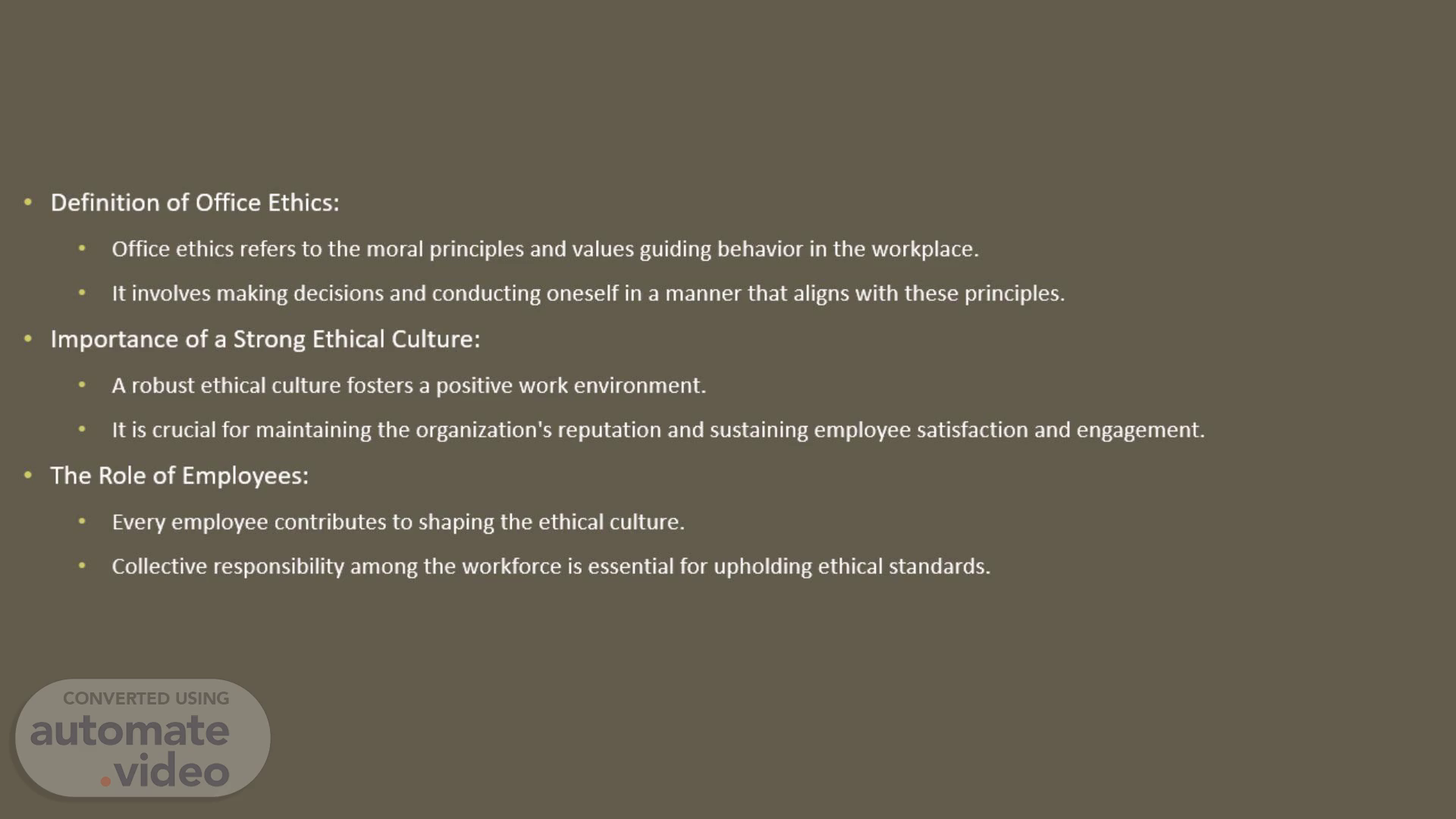
Building A Culture of Office Ethics
Scene 1 (0s)
[Audio] Welcome, everyone. Today, we embark on a journey to explore the essential elements of building a culture of office ethics. In our first slide, let's define office ethics as the moral compass that guides our actions in the workplace. It's about making decisions that align with a set of principles and values. Why does it matter? Well, a strong ethical culture contributes to a positive work environment and is fundamental for maintaining the reputation of our organization. And remember, each one of us plays a crucial role in shaping this ethical culture..
Scene 2 (40s)
[Audio] As we delve into the key principles of office ethics, let's first explore integrity and transparency. Integrity involves adhering to moral and ethical principles, while transparency is about openness and honesty in communication. Consider companies like Patagonia, known for their transparent supply chain practices. Next, we emphasize the importance of respect for diversity and inclusion. Inclusive workplaces value diverse perspectives, and companies like Google are leading the way with initiatives promoting diversity and inclusion. Lastly, accountability and responsibility are paramount. We'll look at examples of companies holding individuals accountable for their actions, such as the aftermath of Volkswagen's emissions scandal..
Scene 3 (1m 31s)
[Audio] Now, let's move to strategies for fostering office ethics. Leadership plays a pivotal role in setting the tone for the entire organization. We'll explore the impact of ethical leadership and provide examples of leaders, like Warren Buffett, who emphasize the importance of integrity. Communication is another key aspect. Open channels for reporting ethical concerns build trust. Look at companies like Microsoft, which have implemented effective whistleblower protection programs. And, of course, ongoing training and development are essential. We'll discuss how integrating ethical considerations into professional development programs enhances decision-making at all levels..
Scene 4 (2m 20s)
[Audio] In our penultimate slide, we discuss the continuous efforts required to maintain and reinforce an ethical culture. Regular assessments of the ethical climate within the organization are necessary. We'll explore examples of ethical audits and surveys that gauge employee perceptions. Positive reinforcement through recognition and rewards is crucial for sustaining ethical behavior. We'll highlight companies with successful recognition programs. Additionally, case studies of organizations that have maintained a strong ethical culture over time will serve as inspiration for our journey toward ethical excellence..
Scene 5 (3m 1s)
[Audio] As we conclude our presentation, let's reflect on the key takeaways. A strong ethical culture is foundational for a positive workplace and organizational success. Principles such as integrity, transparency, and accountability are crucial in shaping this culture. It's important to recognize that each one of us contributes to the ethical culture of our organization. We invite you to actively participate in upholding and promoting office ethics. This is not just about following rules; it's about embracing ethical conduct as a shared value that defines our identity. Thank you for your attention, and let's continue this dialogue about ethics in the workplace..